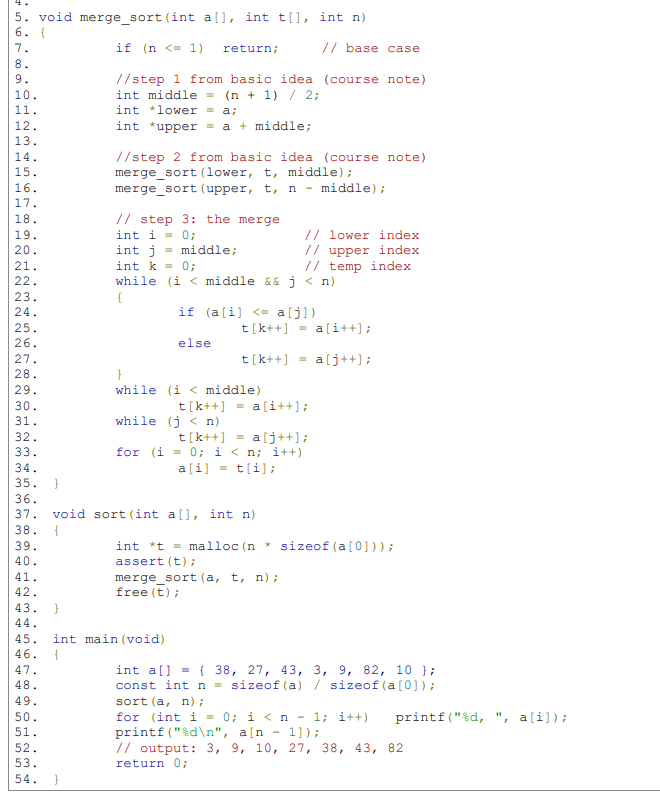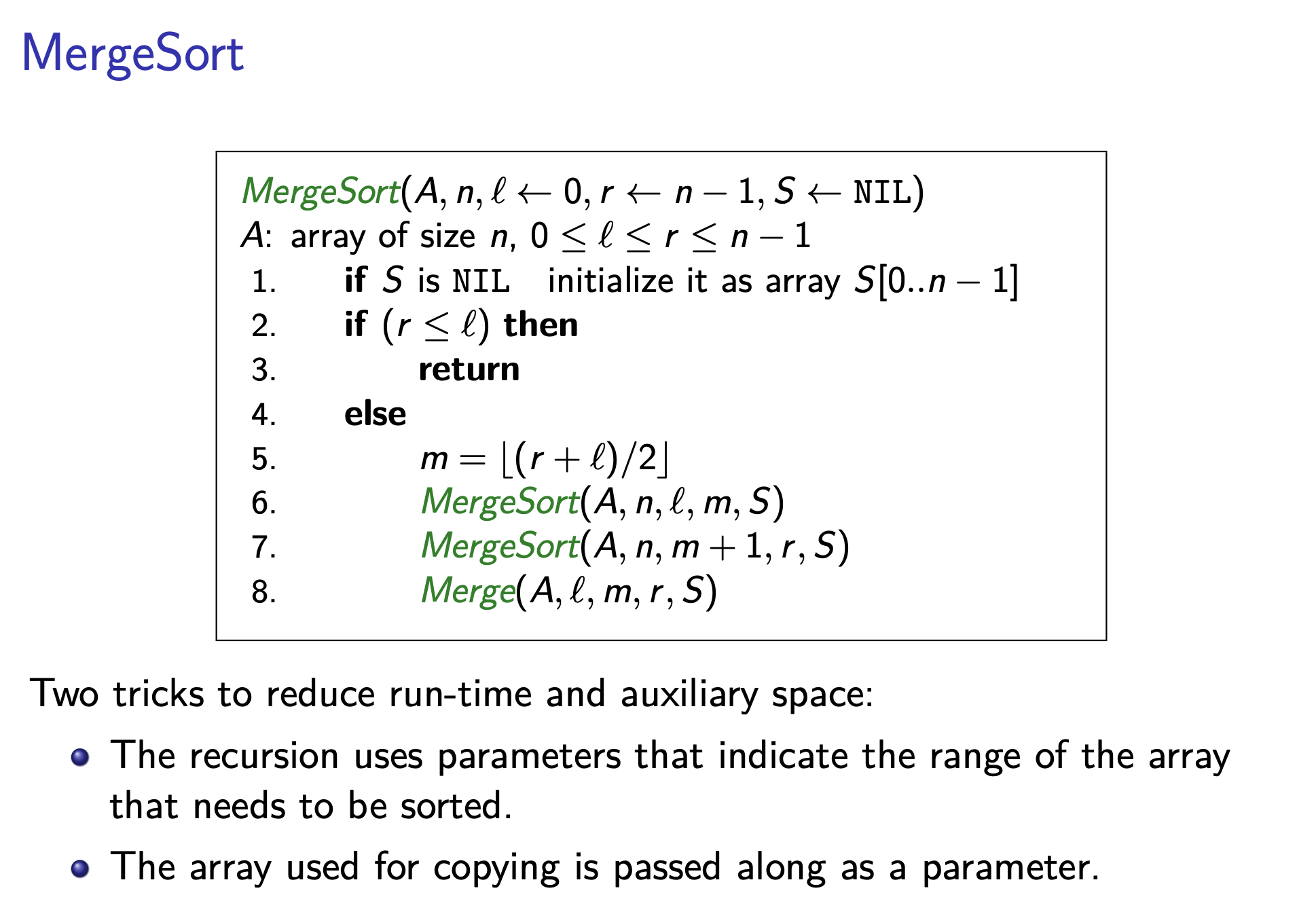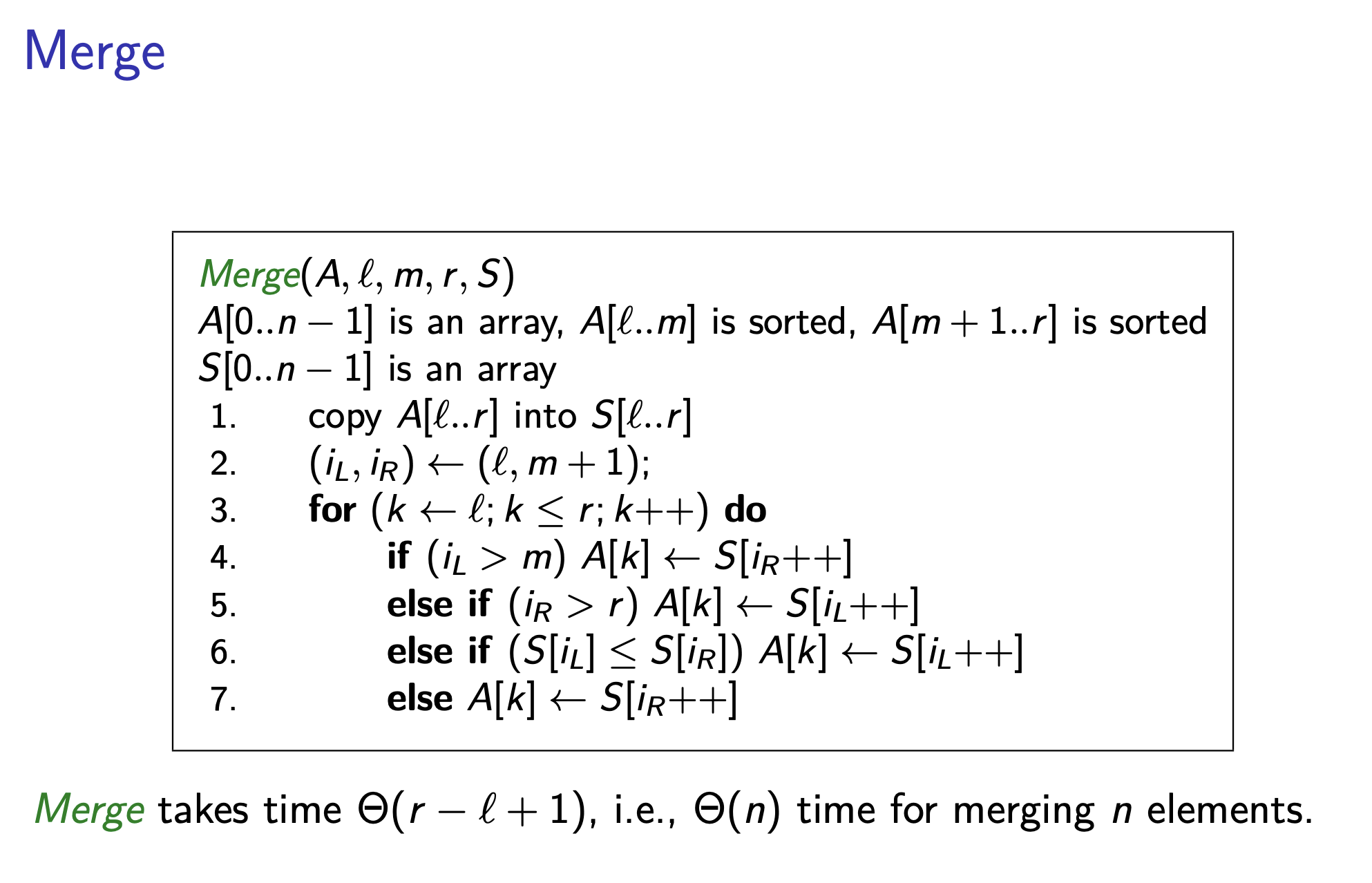Merge Sort
This is probably one of the sorting algorithms that I have a lot of difficulty understanding, alongside Quick Sort.
This algorithm takes more space, so it’s a tradeoff. It’s a Divide and Conquer algorithm. High Level Idea:
- Divide array in half
- Sort each half recursively following the same algorithm
- Merge the results
Time Complexity
- Worst Case:
- Average Case:
- Best Case:
Space Complexity
- Worst Case:
Merge Sort Pseudocode
We can logically divide without physically dividing an array.
From Mari Programming class
def merge(temp, data, lo, mid, hi):
'''Merge step for merge sort.'''
temp[lo:hi] = data[lo:hi] # Copy.
i = lo # start of lower sublist.
j = mid # start of upper sublist.
k = lo # start of merged list.
while k < hi:
if i >= mid: # lower sublist finished?
data[k] = temp[j]; j += 1
elif j >= hi: # upper sublist finished?
data[k] = temp[i]; i += 1
elif temp[i] < temp[j]:
data[k] = temp[i]; i += 1
else:
data[k] = temp[j]; j += 1
k += 1
def split(temp, data, lo, hi):
'''The splitting stages of mergesort.'''
if hi - lo >= 2:
mid = (lo + hi) // 2
split(temp, data, lo, mid)
split(temp, data, mid, hi)
merge(temp, data, lo, mid, hi)
def mergesort(ls):
'''Standard mergesort.'''
tmp = [0] * len(ls) # Temporary storage
split(tmp, ls, 0, len(ls))Bottom up merge sort
def mergesort_bu(ls):
'''Bottom-up mergesort.'''
n = len(ls)
temp = [0] * n # Temporary storage
sz = 1 # Sublist size for merges.
while sz < n:
lo = 0
sz2 = sz + sz # sz2 = 2*sz
while lo < n - sz:
hi = min(lo + sz2, n)
merge(temp, ls, lo, lo + sz, hi)
lo += sz2
sz = sz2
CS240

